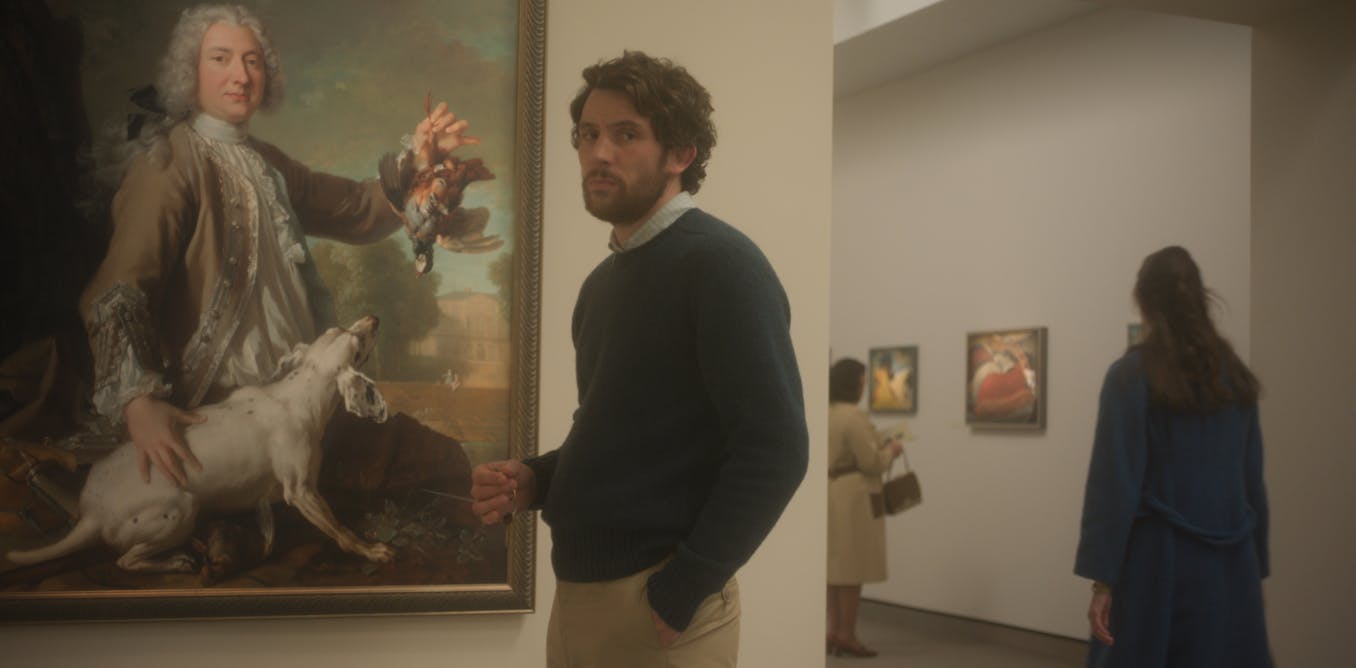Most caper movies tend to focus on the elaborate logistics of a theft – typically of an outlandishly colossal haul or priceless artefact (think Ocean’s Eleven or The Italian Job). In contrast, their close cousin, the heist film, focuses less on the mechanics of the crime and more on its invariably destructive human consequences (such as in Heat or The Town).
While The Mastermind falls firmly into the latter camp, writer-director Kelly Reichardt dials down the genre’s hard-boiled violence and tension in favour of a downbeat, compassionately ironic character study.
It’s bleak early 1970 in the small Massachusetts city of Farmington. President Nixon has just invaded Cambodia and the US is being torn apart by the Vietnam war. But art school dropout James (Josh O’Connor) has only one, almost solipsistically close-to-hand “cause”. He plans to escape the hand-to-mouth tedium of his life as a jobbing interior decorator by lifting four abstract canvases from the local museum.
James recruits a couple of other local losers and they pull off his comically rudimentary plan, clumsily but effectively. But barely have the crew made their getaway than things fall apart. Faced with unwelcome attention from both law enforcement and the local mob, James has to go on the run.
The remainder of the film observes his meandering efforts to elude capture. We follow James’s attempts to husband his dwindling resources across a series of cheerless, wintry locales – diners, bus stations and cheap hotels that call to mind the bleak mid-century vignettes of American artist Edward Hopper.
The Mastermind makes for a fascinating companion piece to Paul Thomas Anderson’s smash hit One Battle After Another, another story of life underground in modern America which is relentlessly propulsive from start to finish – with life-and-death stakes, and political and personal fates inextricably intertwined.
In contrast, The Mastermind portrays the isolation of life on the run with nowhere and nothing to aim for. Unlike One Battle’s revolutionary vanguards “the French 75” (inspired by militants from the era when The Mastermind is set), James is no misguided militant idealist. He’s a would-be grifter who lacks the street smarts to carry off his pitifully low-grade felony. Nor does he have the emotional resilience to reckon with the consequences of his inevitable failure.
Of these, the saddest yet most predictable is the estrangement of his family – wife Terri (Alana Haim) and his two sons. Flattering himself to the bitter end that his sophomoric caper was “for the family … at least 75% of it”, James seems never to have properly considered the consequences of his actions on those closest to him.
He’s an observer of his own life, not a participant, with delusions of superiority wholly unmoored from reality. All around him, his peers march to stop the war. But not only does James lack any larger cause, he barely seems to care who he is or what he’s becoming.
The Mastermind could easily have played as a coldly satirical, loftily Kubrickian take on the futility of ambition and the endless human capacity for self-destructiveness. But Reichardt stays close to her protagonist throughout, neither condemning nor excusing his many failures, and never allowing the film’s pervasive irony to tip into contempt.
James isn’t a particularly bad guy, and nor is he a classic antihero. He is simply morally and ethically myopic – chronically ungrounded and always seeking the path of least resistance. Throughout the film, his manifold failings remain only too human, and Reichardt observes them with a consistently compassionate eye – with Christopher Blauvelt’s cinematography finding the poignancy and poetry in the dreary late-winter Northeastern landscape.
James is certainly no mastermind. But Reichardt invites us to understand and if not empathise, at least sympathise with him – and in so doing, recognise how close we all might be to making equally terrible mistakes.
Looking for something good? Cut through the noise with a carefully curated selection of the latest releases, live events and exhibitions, straight to your inbox every fortnight, on Fridays. Sign up here.

The post “this art theft heist offers a compassionate character study” by Barry Langford, Professor of Film Studies, Royal Holloway, University of London was published on 10/22/2025 by theconversation.com





































Leave a Reply